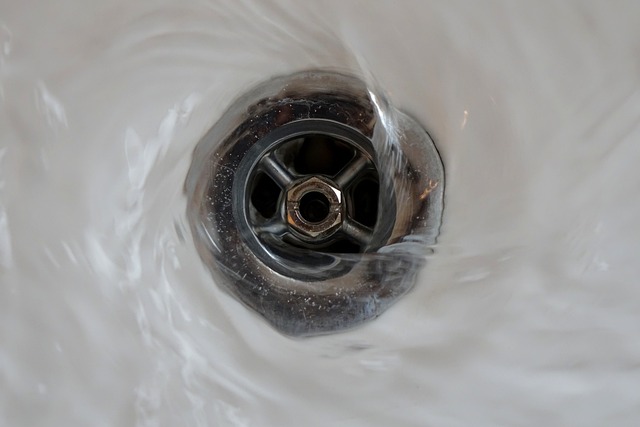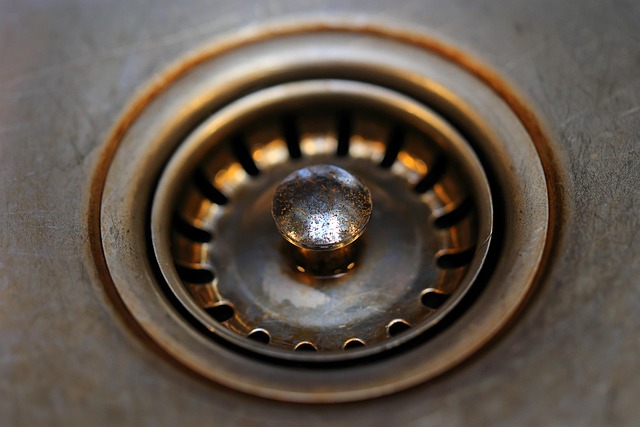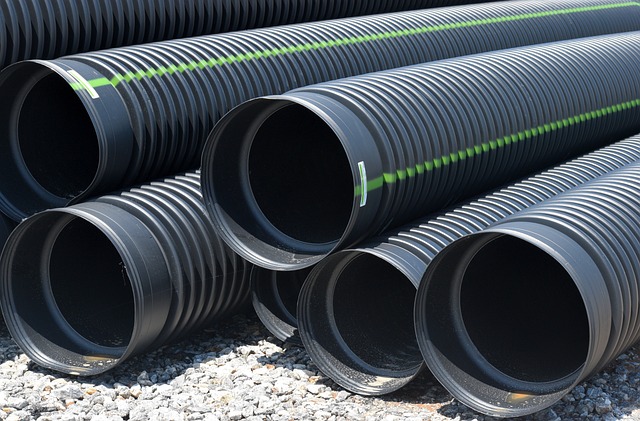Early signs of a clogged drain, such as slow drainage, water backing up, and unpleasant odors, indicate immediate attention is needed. Common causes include grease, hair, food scraps, and non-biodegradable items. Proper disposal practices are crucial to prevent blockages and costly plumbing repairs.
Do you ever wonder what that peculiar smell coming from your drains means? It could be a sign of a clogged drain, a problem that, left unaddressed, can lead to severe damage and health hazards. This article guides you through five clear signs indicating your drain needs immediate attention. From identifying common causes like grease, hair, and foreign objects, to recognizing distinct smells and noises, we’ll equip you with the knowledge to maintain optimal drainage health.
- Identifying Common Drain Issues
- – Discussing typical causes of drain clogs
- – Examples of everyday items that can cause blockages
Identifying Common Drain Issues

Many common drain issues can be easily identified by their distinct smells and visible signs. If you notice any of the following, it’s a clear indication that your drain needs immediate attention:
1. Signs of a Clogged Drain: One of the most prevalent problems is a clogged drain, which often leads to slow drainage or complete blockage. This can be recognized by a distinct, unpleasant odor and bubbling sounds coming from the drain. Debris like hair, grease, and food particles frequently cause clogs, especially in kitchen and bathroom drains.
2. Unusual odors, such as a rotten egg smell, may indicate a more serious problem. This could be due to a buildup of sulfur bacteria in the pipes or a sign of a larger plumbing issue. Additionally, if water backs up into your sink or tub instead of flowing away, it’s a clear sign that something is obstructing the drain and requires prompt repair to prevent further damage.
– Discussing typical causes of drain clogs

Many homeowners often overlook signs that their drains are clogging until it’s too late, leading to flooding and water damage. Typical causes of drain clogs include building up of grease, hair, soap scum, and other debris in pipes over time. These substances solidify and stick to pipe walls, slowing the flow of water and eventually blocking the drain entirely. Household activities like pouring cooking oil down the sink or using chemical cleaners can accelerate this process. Additionally, tree roots seeking moisture can infiltrate pipes, causing structural damage and further obstructions. Recognizing early warning signs is crucial for immediate action, preventing costly repairs and ensuring your home’s plumbing system operates smoothly.
– Examples of everyday items that can cause blockages

Many everyday items, often carelessly disposed of, can lead to serious drain clogs. Common culprits include grease and fat from cooking, which solidify in pipes when cooled, causing significant blockages. Food scraps, especially grease-laden ones like potato peels, onion skins, and coffee grounds, should never be poured down the drain without proper disposal.
Another common sign of a clogged drain are non-biodegradable materials such as sanitary products, wipes, and personal care items. These items often do not break down easily and can accumulate in pipes, leading to slow drainage or complete blockages. Additionally, hair—especially from bathrooms—can form clogs when it collects around the drain’s curvature, trapping other debris along the way.
If you’ve noticed any of these signs of a clogged drain, don’t ignore them. Prompt action is key to preventing bigger plumbing issues and costly repairs. Regular maintenance and being mindful of what goes down your drains can go a long way in keeping your pipes in top shape. Remember, addressing drain problems early can save you time, money, and potential embarrassment from an overflow!
